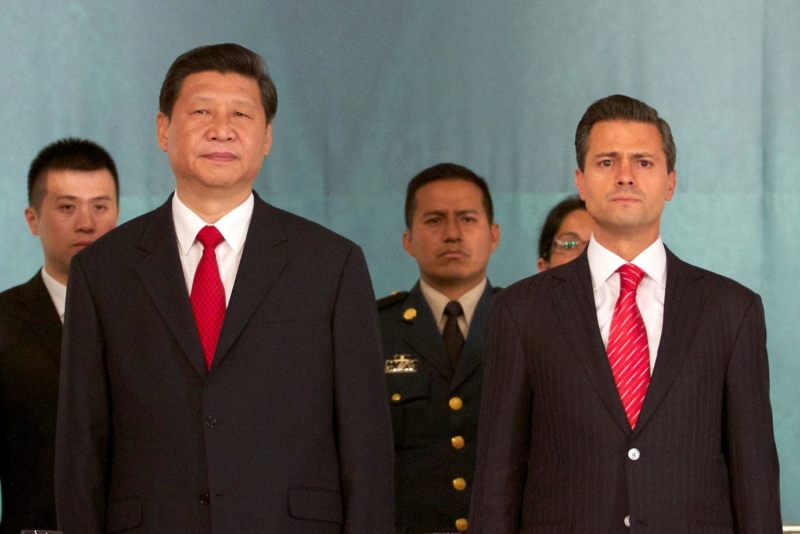The Politics Of Disaster Relief
After a 7.0 magnitude earthquake struck Haiti, the aftershock reached China in ways that few anticipated.The earthquake forced Chinese leaders to navigate the tricky politics of disaster relief.
As the Trump administration contemplates border wall prototypes and dissolving the decades-old North American Free Trade Agreement (NAFTA), China is taking a decidedly different approach to relations with Mexico. In recent months, Beijing has launched an unprecedented charm offensive south of the Rio Grande. In addition to a series of new investments, and renewed talk of a bilateral trade pact, China invited Mexico as one of five nations to consider a “BRICS plus” arrangement, which would add new members of the global South to the now five-country grouping.
If the past decade was “a period of strategic opportunity” for China’s own development, based on a favorable external environment and the country’s growing economic competitiveness, the current one would also seem an auspicious moment for Beijing.
The range of policies emanating from Washington, in particular, has set an especially low bar for China in Latin America and other regions. In the case of Mexico, the U.S. president’s inflammatory rhetoric, the wall debate, and the recent move against the Deferred Action for Childhood Arrivals, which largely affects those of Mexican descent, are hastening Mexico’s diversification of its political and economic partnerships.
According to Maria Cristina Hernandez Zermeño, Director General for Asia and Oceania and Multinational Organizations at the Mexican Economy Ministry, who spoke at an October 2017 forum on Mexico-Japan relations, “Mexico is now orienting its economic efforts to diversify its ties with other economic poles.” The Director General explained that although U.S.-Mexico ties remain strong, the Asian region—especially China, Japan, and Korea—will be a key partner for Mexico in the coming years. Jorge Lomónaco, Mexico’s ambassador to the Organization of American States, made similar remarks during the Mexican Senate’s “Priorities in the 2017 Multilateral Agenda” forum, noting that Mexico is looking “for new strategic partners…to push forward those initiatives that reflect national interests and priorities…”
As Mexico rethinks its international partnerships, Beijing is looking to fill likely voids. In the past few months alone, Chinese leaders have approached Mexico with a series of diplomatic offerings. In addition to extending Mexico an invitation to September’s BRICS Summit, China also alluded to Mexico’s key role in its Belt and Road Initiative (BRI), even though BRI maps don’t yet formally include the Latin American region. Mexico, as Chinese President Xi Jinping explained in September, is an “important pivot of the natural extension of Belt and Road construction in Latin America.”
China also recently proposed advancing the current China-Mexico Comprehensive Strategic Partnership to “a new situation with all-round cooperation.” In Chinese political speak, this shift would position the China-Mexico relationship alongside China’s ties to Germany, a historically robust relationship that might also be strengthening amid frustrations over Trump administration policy.
The numerous deals inked by China and Mexico in the past two years also point to warming relations. While in Hangzhou in September, Mexican President Enrique Peña Nieto signed an agreement with Alibaba Group Holding, Ltd. to feature Mexican products on the company’s e-commerce platform. Alibaba’s Jack Ma, who has become a de facto economic envoy for China, also promised to train Mexican entrepreneurs and improve Mexican logistics.
After a 7.0 magnitude earthquake struck Haiti, the aftershock reached China in ways that few anticipated.The earthquake forced Chinese leaders to navigate the tricky politics of disaster relief.
The question remains if Mexico has achieved a degree of institutional development consistent with its participation in those organizations.
Focusing on transnational crime is a top priority of the Obama administration’s policy in Latin America.
 Angélica Rivera de Peña / Wikimedia Commons / CC BY-SA 2.0
Angélica Rivera de Peña / Wikimedia Commons / CC BY-SA 2.0